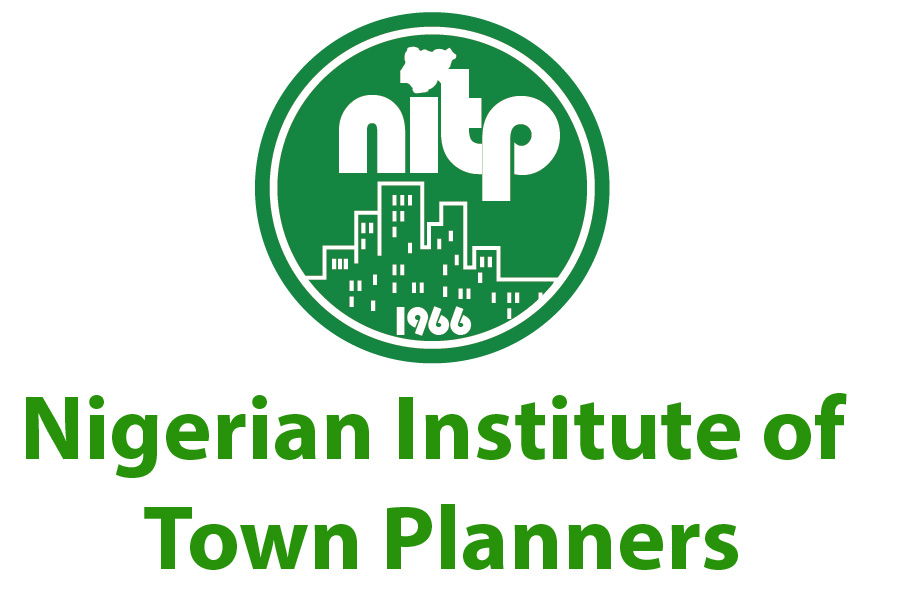529
Daniel Adaji
Over three decades after it was mandated by law, Nigeria has yet to establish its National Urban and Regional Planning Commission, drawing strong criticism from the Nigerian Institute of Town Planners (NITP).
Speaking on Friday at the unveiling of the Nathaniel Atebije Foundation for Planning Advocacy and the 70th birthday celebration of the institute’s immediate past president, Nathaniel Atebije, NITP President Dr. Ogbonna Chime lamented the federal government’s prolonged neglect in implementing the Nigerian Urban and Regional Planning Law enacted in 1992.
“In 1992, under a military government, the Nigerian Urban and Regional Planning Law was enacted. This law provided for the establishment of key planning institutions, including a National Urban and Regional Planning Commission. Unfortunately, that commission has yet to be established over 30 years later,” he said.
He further noted that even in Abuja, the capital city, the Federal Capital Urban and Regional Planning Board—also mandated by the same law—remains non-existent. “If this had been done,” he said, “we wouldn’t be facing the recurrent flood problems we have today. But the board was never established, and the plan was never prepared.”
The absent commission, according to Chime, would have been responsible for preparing a National Physical Development Plan and a National Drainage Plan, leveraging the expertise of professionals across the built environment.
“These professionals—civil engineers, land planners, architects, land surveyors—understand the geography and topography of their regions. They could have produced a National Drainage Plan to manage water flow and reduce flood risk,” he said.
Chime criticized the disconnect between planning professionals and government decision-making.
“Many planning decisions are made without the input of professional town planners, and that is why advocacy is so critical. We have been advocating for over 20 to 25 years, yet government response has been minimal,” he stated.
He emphasized that a plan without implementation is “essentially no plan at all,” urging the federal government to begin enforcing the 1992 law.
“Once we begin to enforce the urban and regional planning law.Nigerian cities can rival cities like London or any other advanced urban center,” he said.
Echoing this sentiment, celebrant Nathaniel Atebije highlighted the importance of legally backed planning.
“The Nigerian government enacted the Urban and Regional Planning Law in 1992, later amended in 2004. Unfortunately, these laws have not been fully enforced—neither at the national level nor domesticated at the state and local government levels,” he stated. “Any action taken without legal authority is ineffective and ultimately invalid.”
Also speaking at the event, Vice Chancellor of Ahmadu Bello University, Adamu Ahmed added a moral and ethical dimension to the conversation.
“Planning must be rooted in fairness and human dignity, not just efficiency and growth,” he said.
Drawing from both Christian and Islamic traditions, he framed urban planning as a form of stewardship over the earth.
“Human beings are caretakers, not owners, of the natural environment,” he asserted, urging planners to rise to this “spiritual calling,” he said.
Also speaking at the event, President of the Real Estate Developers Association of Nigeria, Akintoye Adeoyo stated that,
“Housing is a fundamental human right.
Every Nigerian deserves the dignity of a home. Through strategic advocacy, meaningful partnerships, and forward-thinking innovation—like the foundation we are launching today—we can make this vision a reality.”
Adeoye stressed the significance of collaboration, citing the roles of REDAN, the Nigerian Institute of Town Planners (NITP), and other institutions in driving sustainable housing development.
“We believe real estate is not just about constructing buildings; it is about shaping lives, communities, and economies. Advocacy plays a vital role in building a housing sector that is inclusive, well-regulated, and sustainable,” he said.
The REDAN president honoured Atebije’s legacy, describing him as a “visionary leader” whose efforts have shaped Nigeria’s urban development.
“His leadership and vision laid a solid foundation for structured urban planning, which is critical to Nigeria’s sustainable development,” Adeoye said.
In his address, John Abuh, Chairman of the occasion, bemoaned the state of urban infrastructure and leadership disconnect, recalling historical missteps and missed opportunities in urban development across the country.
“We travel for Hajj, to Jerusalem, to Europe—we admire what we see, but return home with no intention to implement those ideas. The result? Planlessness. And we can’t continue like this,” he said.
Abuh called for the appointment of qualified professionals in planning roles, decrying the normalization of poor planning and lawlessness.
“You go to some areas and see drainage systems that are barely a foot wide. You raise concerns, and a minister responds, ‘Isn’t it better than nothing?’ What kind of logic is that?”
The gathering served as both a celebration and a call to action, with the NITP and other professionals renewing their demand for full implementation of Nigeria’s planning laws.
“Any settlement without a plan is a disaster waiting to happen,” Chime added.



